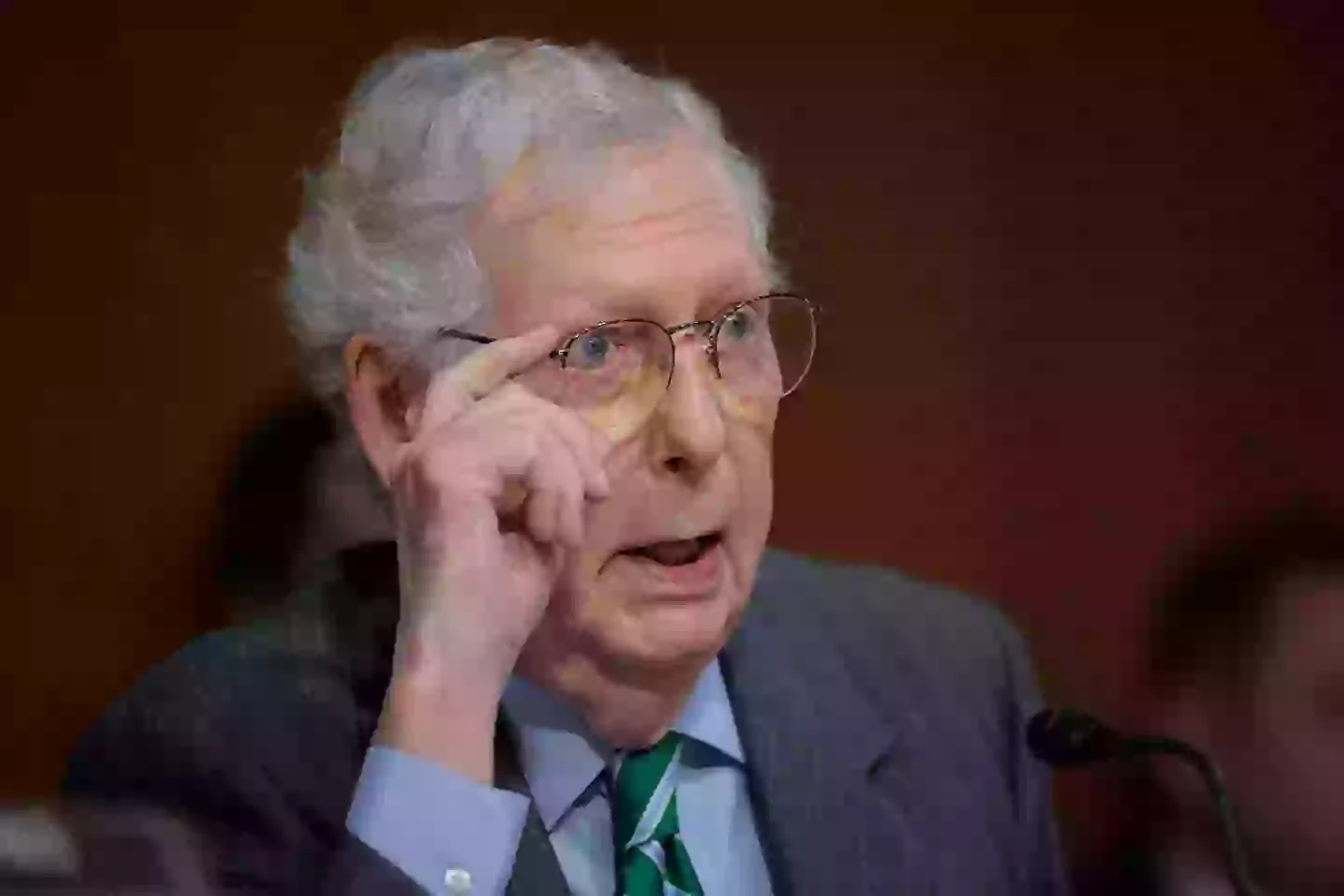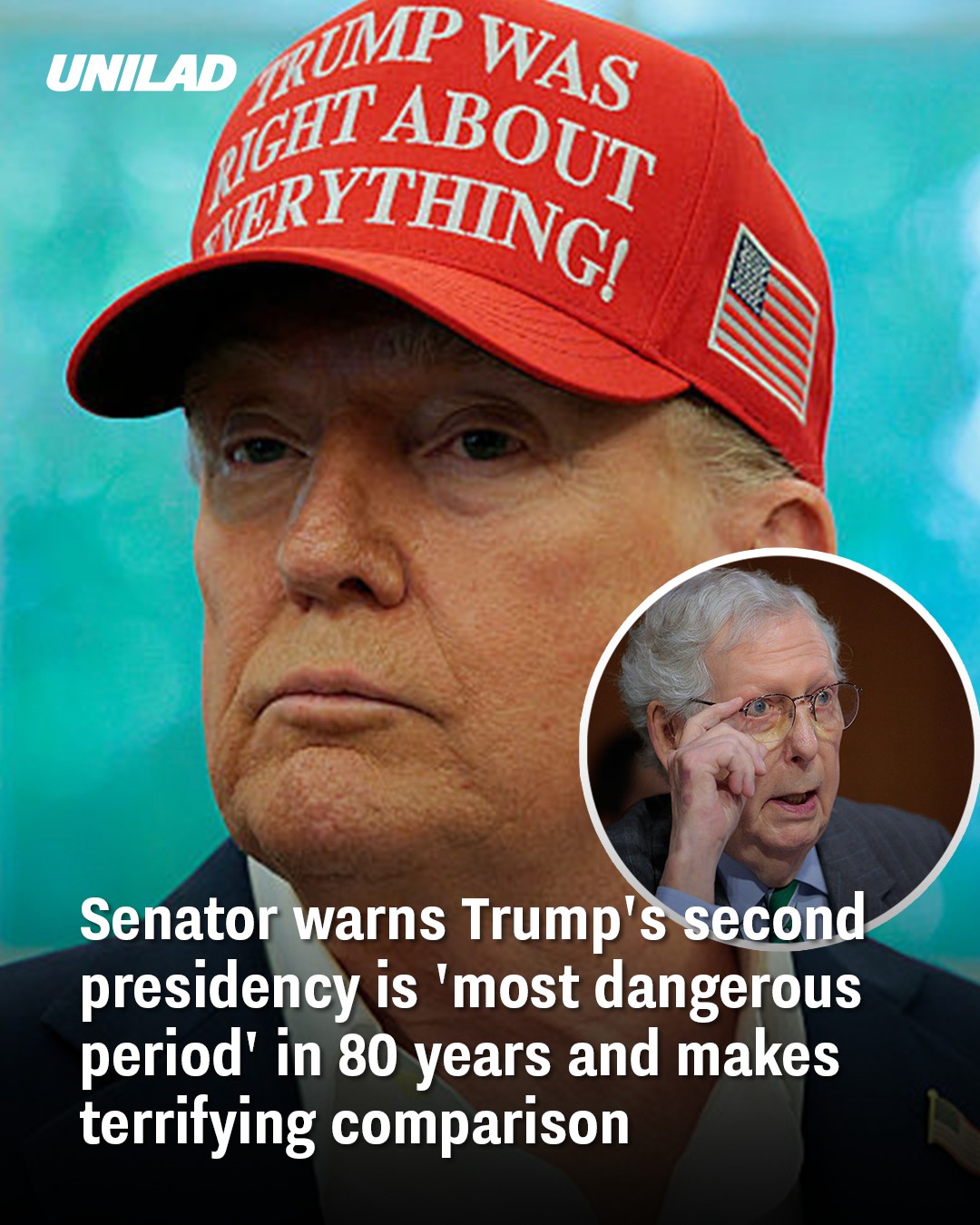A Senator’s Warning: Echoes of the 1930s and a Looming Global Crisis
As his long and impactful career draws to a close, Senator Mitch McConnell, the longest-serving Senator in Kentucky’s history, has issued a stark and unsettling assessment of America’s current geopolitical standing. His words paint a picture of a nation teetering on the brink, echoing the dangerous pre-World War II era.
The Perilous Path: International Relations Under Strain
A World Growing Hostile
McConnell, a Republican stalwart, voiced profound concern about the growing anti-American sentiment worldwide. He pointed directly to President Trump’s policies, specifically the controversial tariffs, as a significant factor in fueling international tensions. His statement highlighted a chilling reality: North Korea, China, Russia, and Iran, along with Iranian proxies, share a common thread – a deep-seated animosity towards the United States. This, he argued, is a far more dangerous situation than many realize.

Unprepared for Conflict?
McConnell stressed that the U.S. is demonstrably unprepared to navigate this treacherous landscape of global animosity. He used the ongoing situation in Ukraine as a potent example, warning of the dire consequences should the conflict end with a Russian victory and an American defeat. The ramifications of such an outcome would be far-reaching and catastrophic, impacting global stability on an unprecedented scale. This isn’t simply a matter of military might, but of strategic foresight and diplomatic skill, both of which he suggests are currently lacking.
Historical Parallels and a Troubling Presidency
Lessons Unlearned from the Past
Drawing a direct comparison to the volatile political climate of the 1930s, McConnell highlighted the similarities between the “America First” sentiment then and the prevailing political rhetoric today. He directly linked the Smoot-Hawley Tariff Act of 1930, widely considered a contributing factor to the global depression, to the current economic tensions. This historical context underscores the potential for devastating consequences if current policies aren’t drastically altered.

The “Department of War”: A Symbolic Shift with Significant Implications
A Change in Name, a Change in Approach?
Adding another layer of complexity to the already precarious situation is the proposed renaming of the Department of Defense to the Department of War. This initiative, driven by President Trump and championed by Secretary of Defense Pete Hegseth, aims to project a stronger image of American military readiness. Hegseth, in an interview with Fox News, explicitly linked this rebranding to the wartime successes of previous administrations. However, critics argue this move underscores an overly aggressive and potentially escalatory foreign policy.
The shift from “Defense” to “War” is more than just a semantic change; it symbolizes a fundamental shift in national priorities and strategic approach. The implications of such a transformation are far-reaching and demand careful consideration.
Conclusion: A Call for Caution and Strategic Reassessment
Senator McConnell’s warning serves as a critical call to action. His words are not those of partisan politics but a deeply concerning assessment of the current global landscape. The echoes of the 1930s, the rising international tensions, and the aggressive posturing of the current administration demand immediate and thoughtful attention. The future of the United States, he cautions, hangs precariously in the balance.
https://www.unilad.com/




